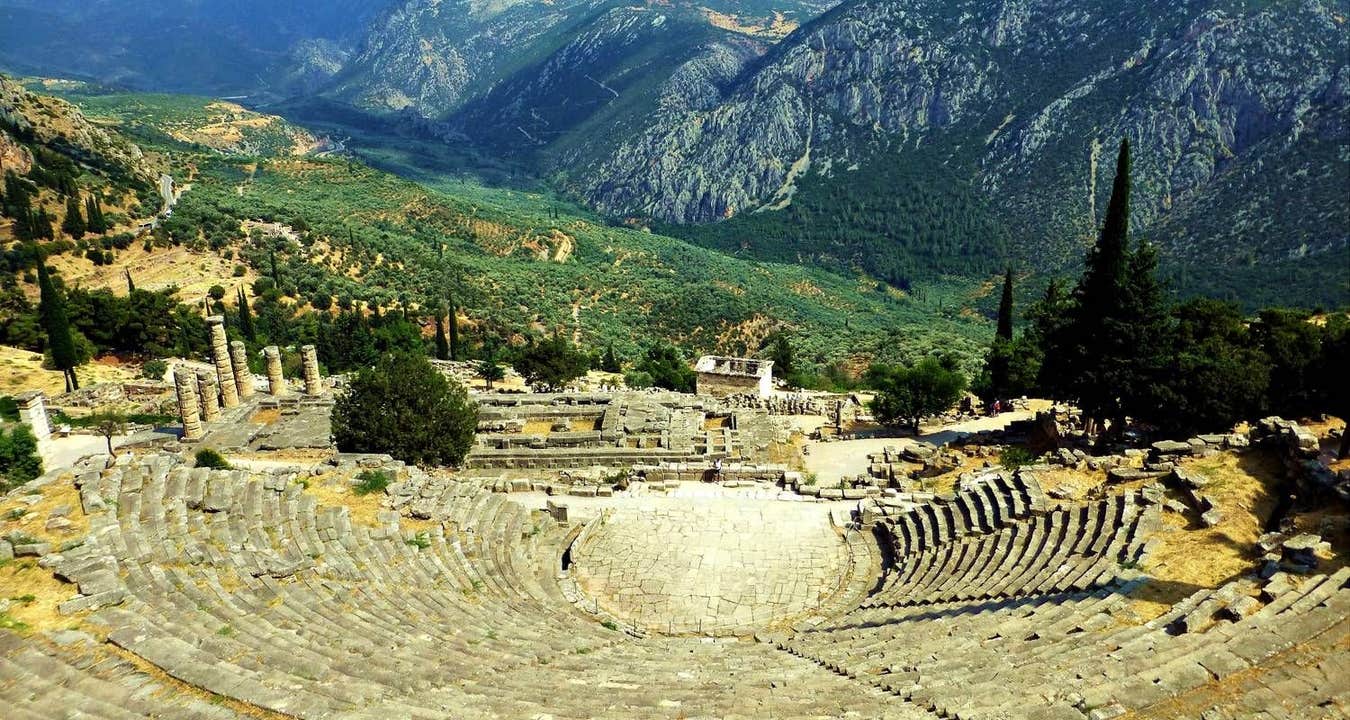



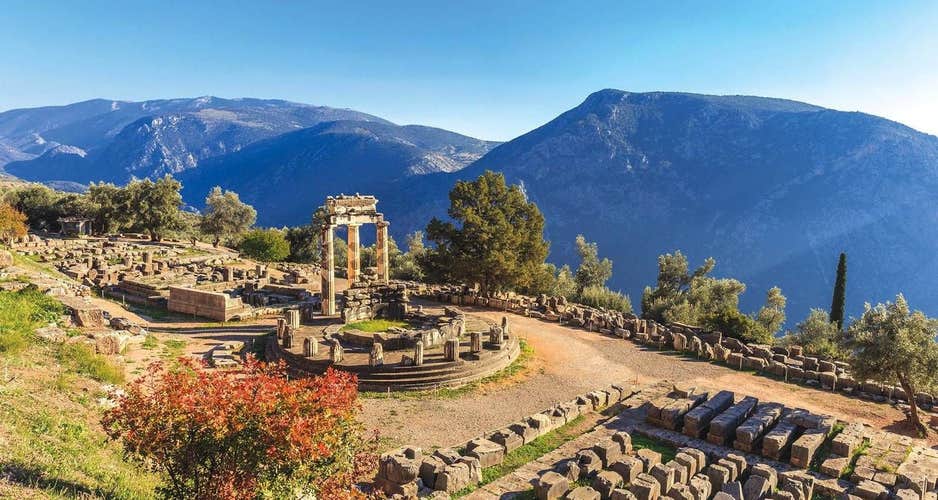
Learn everything you need to know about the best time to visit Greece. Know when to catch the best weather, cultural events, and fewer crowds. Are you dreaming of sun-soaking on beaches or exploring ancient ruins? This comprehensive guide will help you plan your trip and make incredible memories in Greece.
Greece's varied landscape and different seasons result in distinct weather patterns across its regions. To ensure the best experience, it's important to plan your visit carefully.
Secure your spot early by booking from Greece's most extensive selection of tours and tickets, ensuring you won’t miss out on the country’s iconic experiences. With Greece's variety of travel packages at your fingertips, you can tailor your journey to fit your interests, whether you're seeking adventure, relaxation, or culture.
Greece is a land made for exploration, where charming streets and ancient ruins are waiting to be discovered. For those looking to expand their horizons, a wide array of car rentals in Greece lets you venture beyond the cities to stunning destinations like the Cyclades, Crete, and beyond.
Ready to embark on a Greek adventure? Read this guide to learn how to match your travel dates with your favorite activities to choose the perfect time for your trip!
Best Time To Visit Greece To Discover Its Wonders
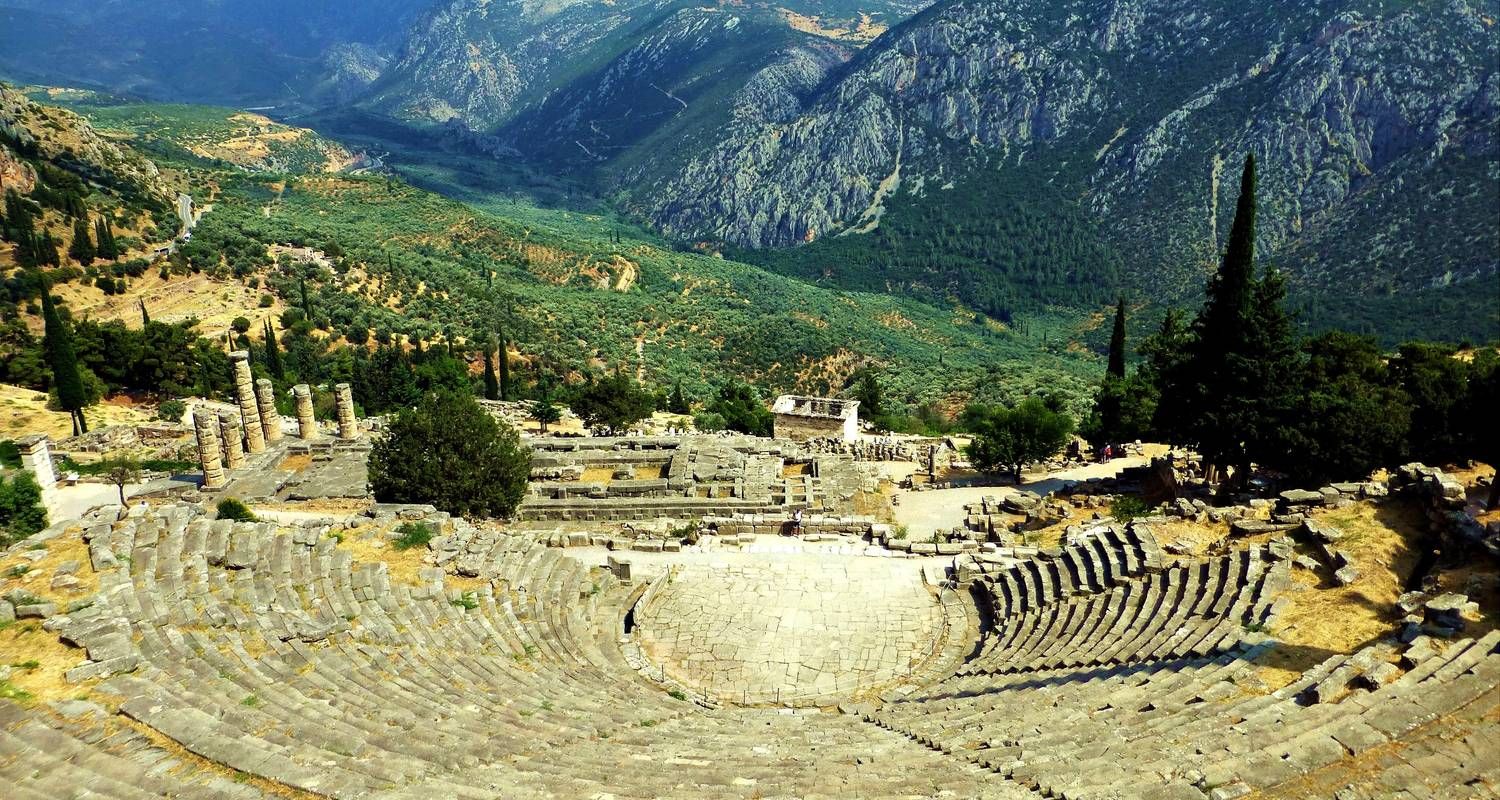
Late spring (May to June) and early fall (September to October) are the best times to visit Greece for a balance of good weather, fewer crowds, and lower prices. However, depending on what you want to experience during your trip, other times of the year may be better.
Greece is a country brimming with rich history, stunning landscapes, and vibrant culture. From the ancient ruins of Athens to the picturesque villages of the Greek islands, every corner of this place tells a story. Its blend of historical sites and modern attractions makes it a captivating destination for travelers.
Additionally, Greece's beauty is undeniable with its clear waters, white-washed buildings, and stunning sunsets. Explore the bustling streets of Athens and the charming alleys of Crete, or enjoy vacations on the serene beaches of Mykonos. Each place offers a unique experience, blending natural beauty with cultural richness.
During your visit, you can enjoy food and drink experiences in Greece that showcase authentic flavors and rich culinary traditions. Savor traditional dishes like moussaka, souvlaki, and baklava at local tavernas. The hospitality of the Greek people makes your visit unforgettable.
Greece: Climate and Seasons
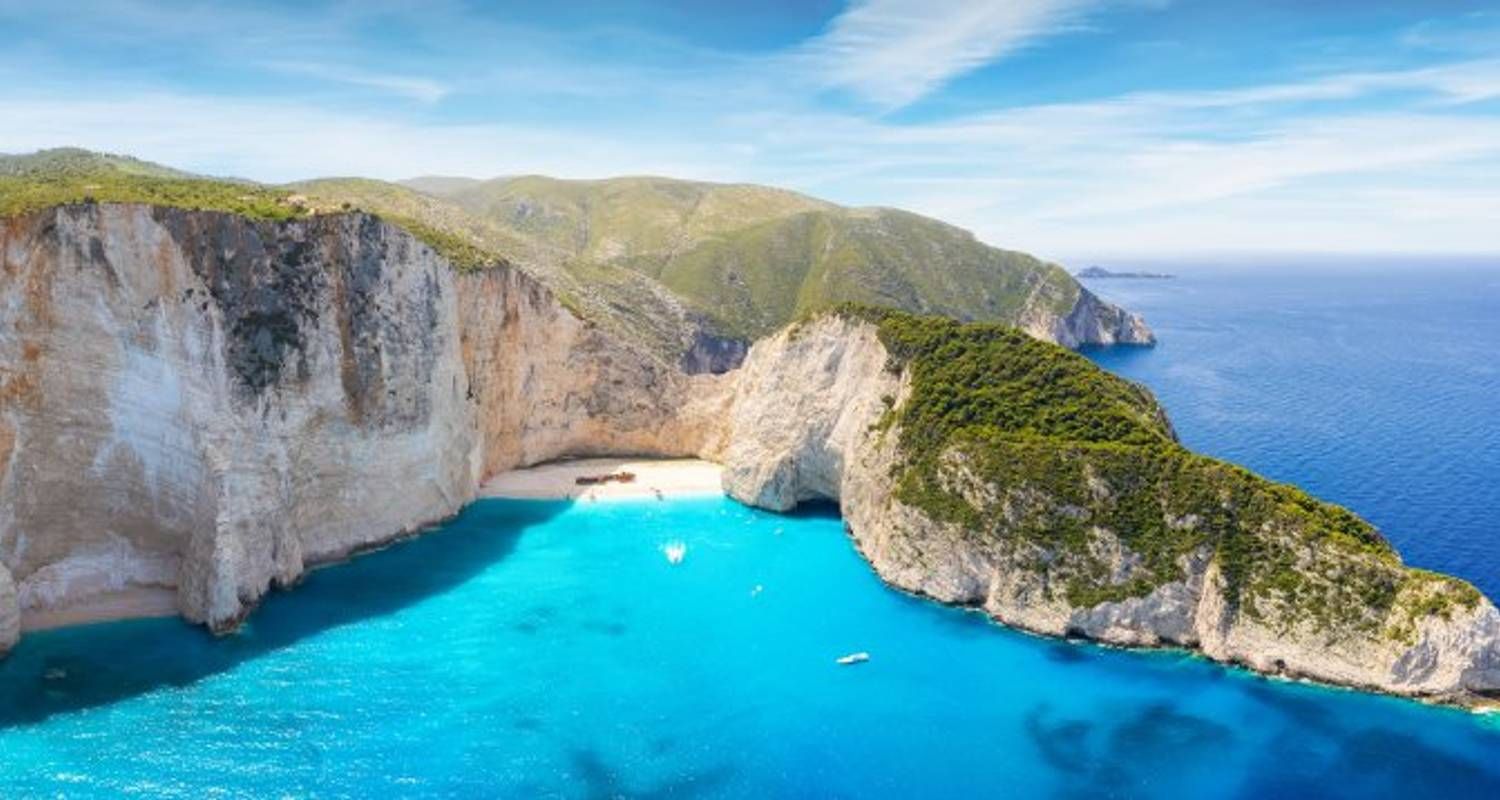
Greece experiences a Mediterranean climate characterized by hot, dry summers and mild, wet winters. The country's geography is diverse, including mountains, coastlines, and islands. This diversity means the climate can vary from one region to another.
Spring (March to May)

Spring is one of the ideal times to visit Greece. The weather is comfortable and mild, with temperatures ranging from 59 F to 77 F (15 C to 25 C). The landscape is lush and green, and wildflowers are in full bloom. This is an excellent time for outdoor activities in Greece like hiking and sightseeing.
During spring, the place is less crowded compared to the summer months. It's an ideal time to explore popular Greek destinations without the hustle and bustle. Accommodation and flight prices are also more affordable than during the peak season. Additionally, spring is an ideal time to visit the Greek islands, where local markets are lively with fresh produce.
Some notable spring events include Greek Orthodox Easter. It is one of the most important religious celebrations in this country. The festivities feature processions, fireworks, and feasts, offering a unique cultural experience. This makes spring one of the best seasons to visit Greece.
Summer (June to August)

Summer is the peak tourist season in Greece, especially in Athens, Santorini, and Mykonos. Temperatures can soar above 86 F (30 C), and the beaches are bustling with visitors. While the weather is perfect for swimming and sunbathing, the crowds can be overwhelming.
If you're visiting in summer, book your accommodation and flights early as prices peak. Tourist spots can be crowded, but planning helps. You’ll still be able to enjoy the vibrant nightlife and outdoor activities.
The Greek islands are at their best during summer, with crystal clear waters and lively beach bars. Mykonos is renowned for its vibrant beach parties and bustling nightlife. Meanwhile, Santorini offers breathtaking sightseeing cruises and romantic getaways. Crete, the largest Greek island, has beautiful beaches, historical sites, and charming villages.
Autumn (September to November)
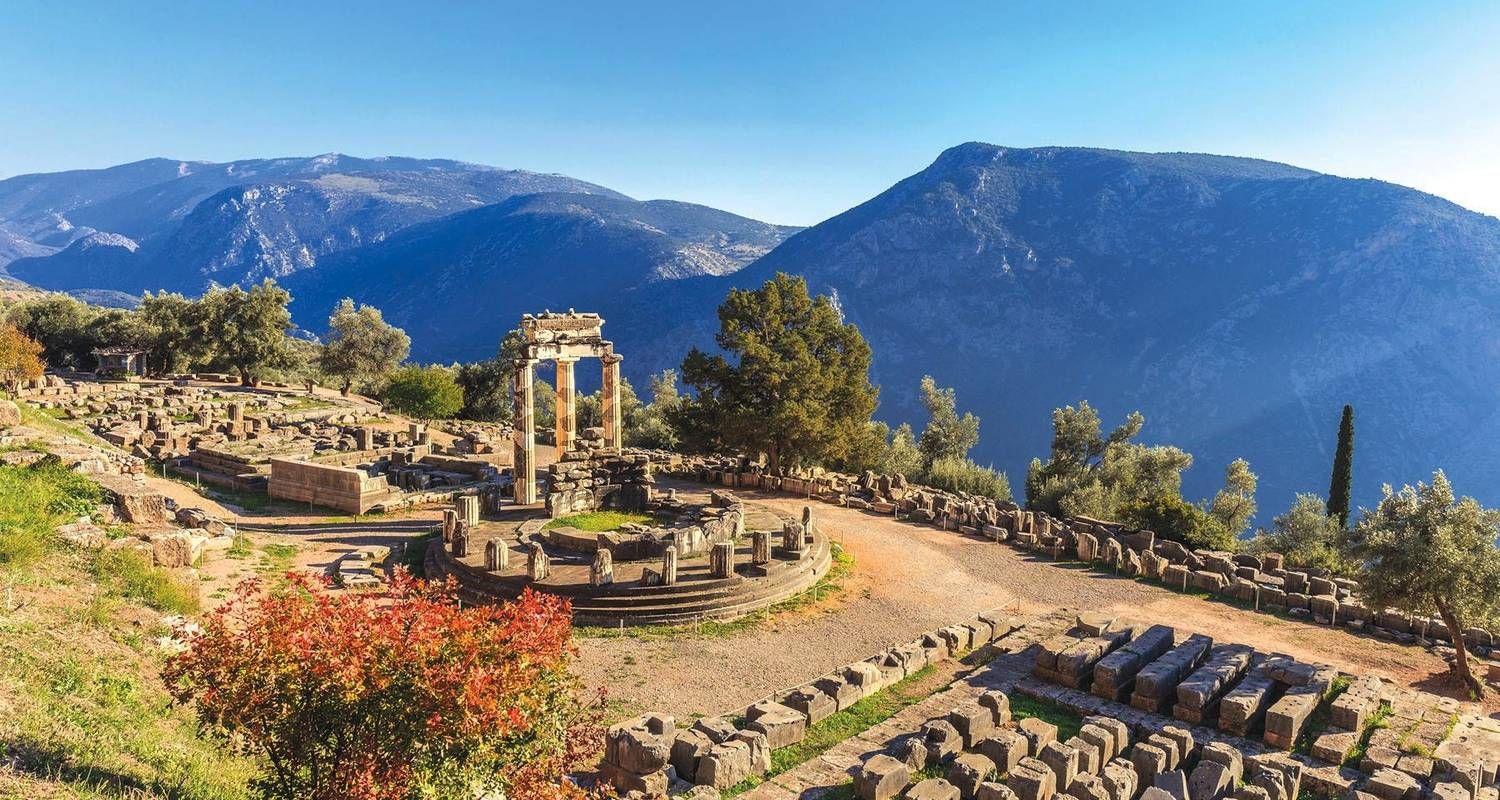
Autumn is another fantastic time to visit Greece. The summer heat begins to wane, and the temperatures are more comfortable, ranging from 68 F to 82 F (20 C to 28 C). The sea remains warm enough for swimming, and the crowds are thinner compared to the summer months.
Autumn is ideal for exploring Greece's historical sites, hiking, and participating in cultural events. The vineyards are in harvest, and you can join wine-tasting tours in Greece. The Athens Marathon, held in November, is a major event that attracts runners worldwide. The weather in autumn is generally stable, perfect for outdoor activities.
Winter (December to February)

Winter in Greece is mild, with temperatures ranging from 50 F to 59 F (10 C to 15 C) in most areas. The weather can be unpredictable, with occasional rain and chilly winds. However, this is the perfect time to explore without the tourist crowds. It's an ideal time for cultural and historical tours in Greece due to fewer crowds and milder weather.
Athens and Thessaloniki are great winter destinations with many museums and historical sites. These cities offer rich cultural experiences even in the colder months. Though quieter in winter, the Greek islands present a different kind of charm and tranquility.
You can experience the local way of life and enjoy the serene landscapes without the crowds. The mountainous regions of the country offer opportunities for skiing and winter sports. These include the Pelion Peninsula and the Zagori villages.
Pros and Cons of Each Season
Greece is a year-round destination, with each season offering unique experiences. Understanding the pros and cons of each season will help you choose the best time to visit Greece based on your preferences and travel goals. Every time of year, from the bustling summer to the tranquil winter season, there are advantages and drawbacks.
Spring - April to June
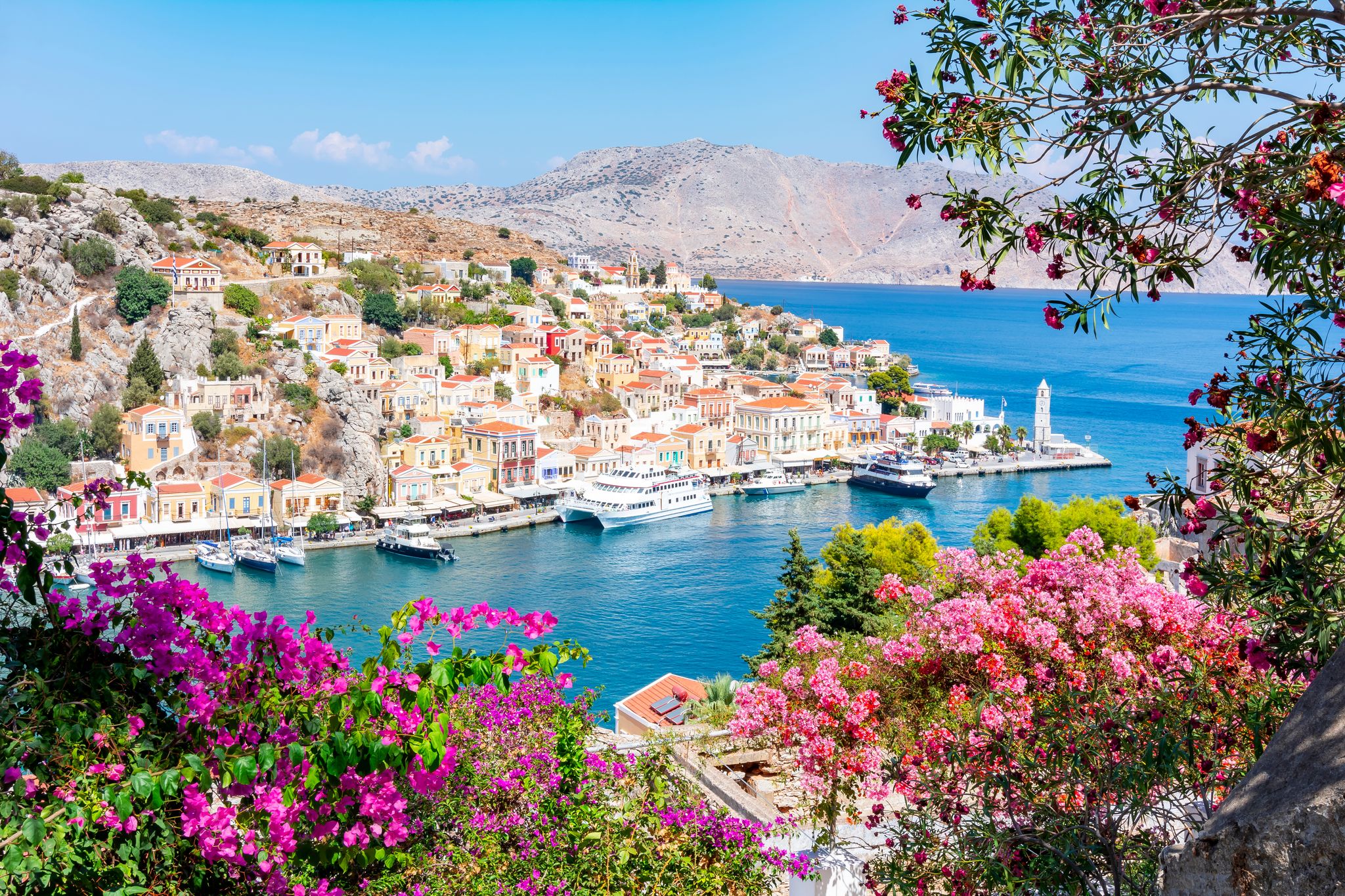
Pros
Mild Weather: Spring in Greece offers pleasant temperatures ideal for sightseeing and outdoor activities.
Blooming Nature: Spring offers beautiful landscapes with blooming flowers and green scenery, perfect for nature walks in Greece.
Fewer Crowds: Tourist sites are less crowded than summer sites, allowing for a more relaxed experience.
Lower Prices: Accommodation and flights are generally more affordable than peak summer months.
Cons
Unpredictable Weather: While generally mild, spring can have unpredictable weather with occasional rain showers.
Limited Beach Time: The sea might still be too cold for swimming, limiting beach activities.
Summer - July to August
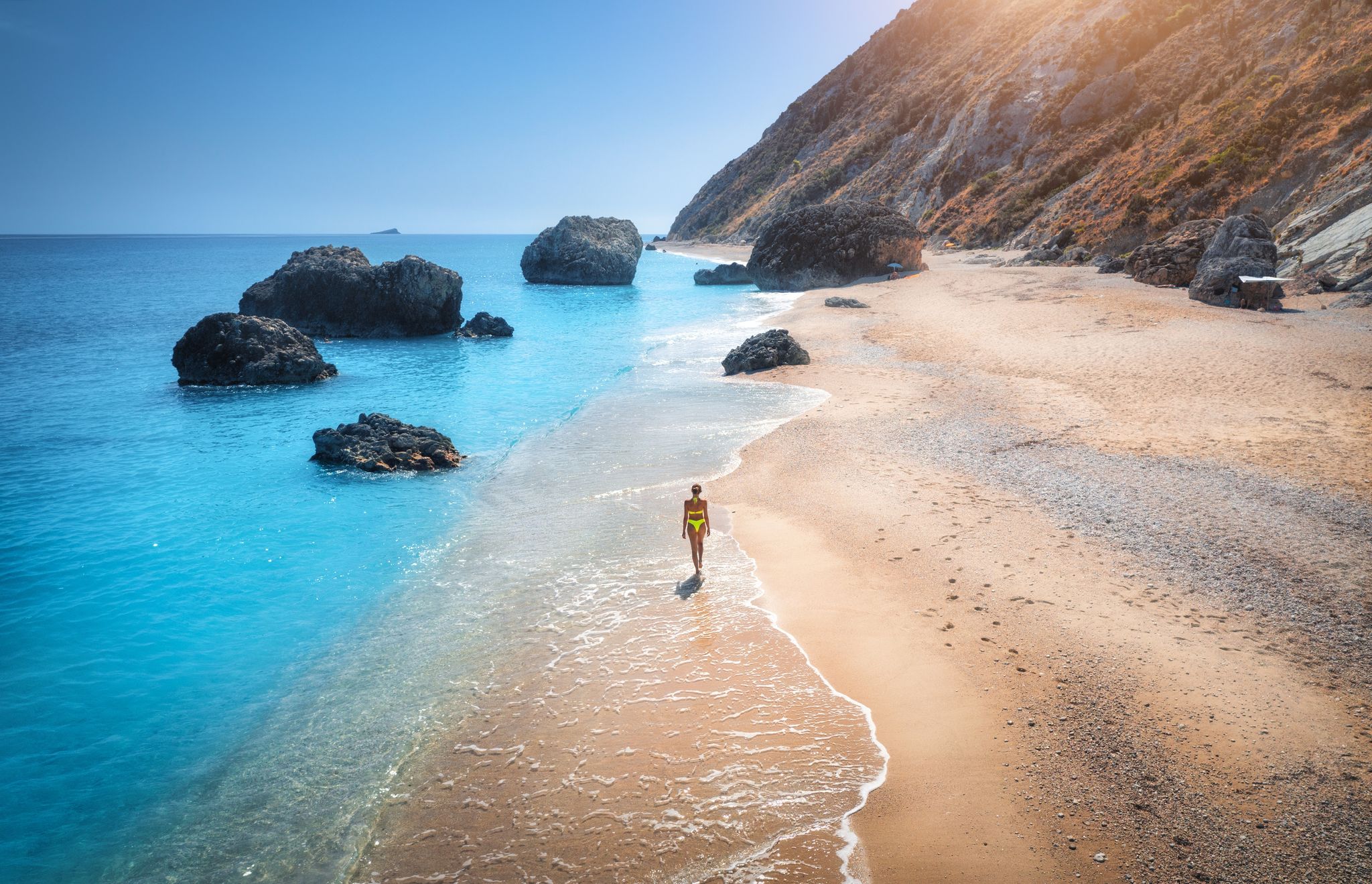
Pros
Perfect Beach Weather: Summer offers hot and sunny weather. For beach lovers, it's the most suitable time to visit Greece.
Vibrant Atmosphere: This is the peak tourist season, with many festivals, events, and lively nightlife.
Extended Daylight: Long days provide ample time to explore and enjoy various outdoor activities in Greece, like running, hiking, horseback riding, and many more.
Cons
High Costs: Airfare, accommodation, and activities are more expensive due to high demand.
Crowded Tourist Spots: Major attractions, beaches, and cities can be highly congested.
Intense Heat: The heat can be fierce, especially in July and August, which may be uncomfortable for some travelers.
Autumn - September to October

Pros
Pleasant Weather: Autumn brings warm temperatures and less humidity, which makes it perfect for exploring.
Harvest Season: This is the time for wine and olive harvests, offering unique Greek culinary experiences.
Fewer Tourists: There are fewer tourists than in summer, providing a more peaceful experience.
Lower Prices: Travel costs start to decrease as the high season ends, thus making it one of the best times to visit Greece.
Cons
Shorter Days: The days start to get shorter, which means less daylight for activities.
Cooling Temperatures: As autumn progresses, temperatures begin to drop, especially in the evenings.
Winter - November to March
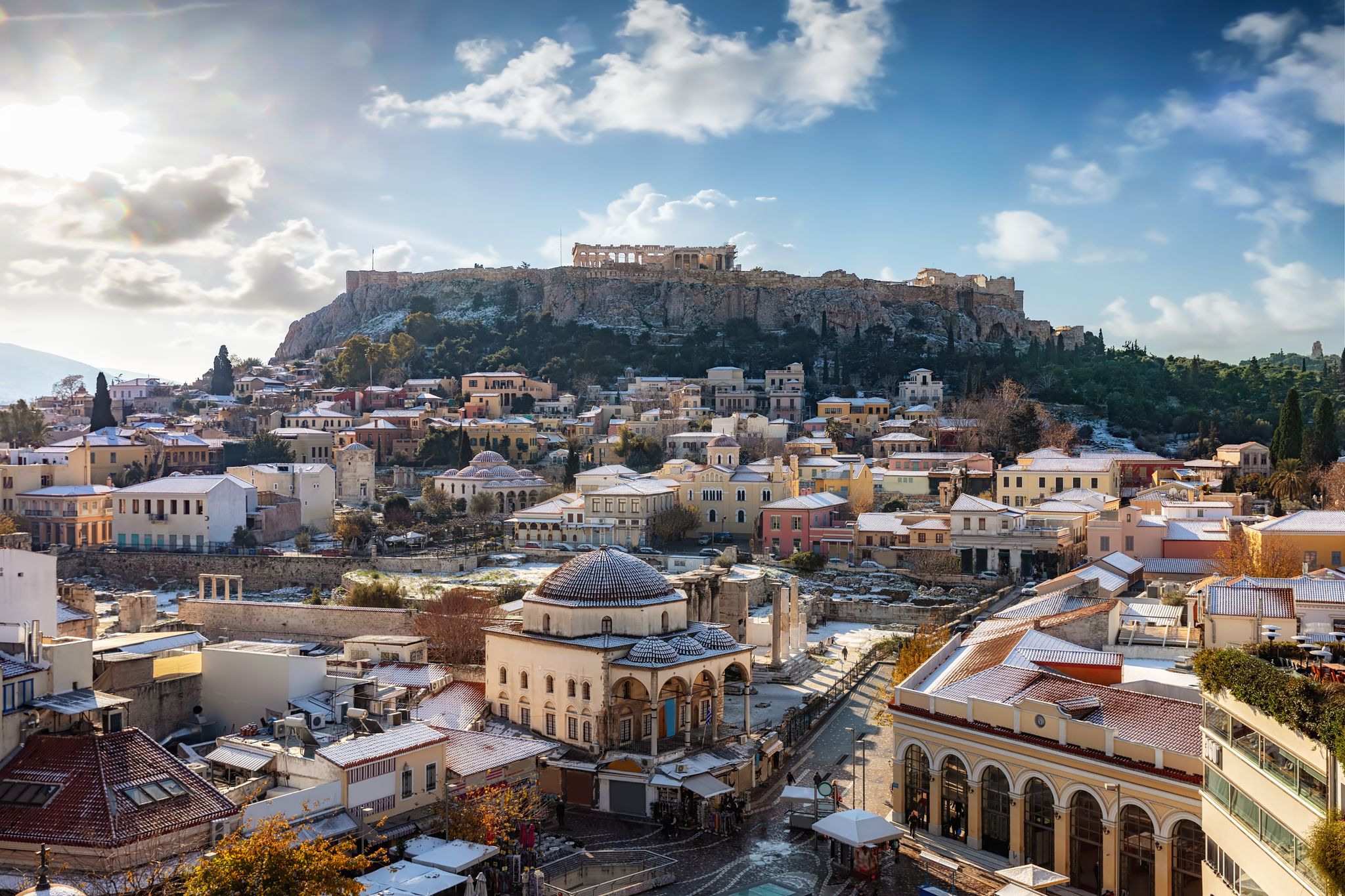
Pros
Lowest Prices: Winter offers the lowest prices for flights and accommodation, making it a prime time to visit Greece.
Cultural Immersion: With fewer tourists, you can experience a more authentic side of Greece and its culture.
Mild Weather in Some Areas: While the mainland can be cold, many islands have mild weather, making them pleasant to visit.
Cons
Limited Services: Some tourist services and attractions may be closed or have limited hours.
Cool and Rainy: The weather can be cool and rainy, especially in the northern regions and on the mainland.
Not Ideal for Beach Activities: The sea is too cold for swimming, and many beach resorts are closed.
Best Time To Visit Greece for Popular Activities
Depending on your interests, the best time to explore Greece can vary. Here's a breakdown of the ideal periods for different activities:
Beach Holidays in Greece
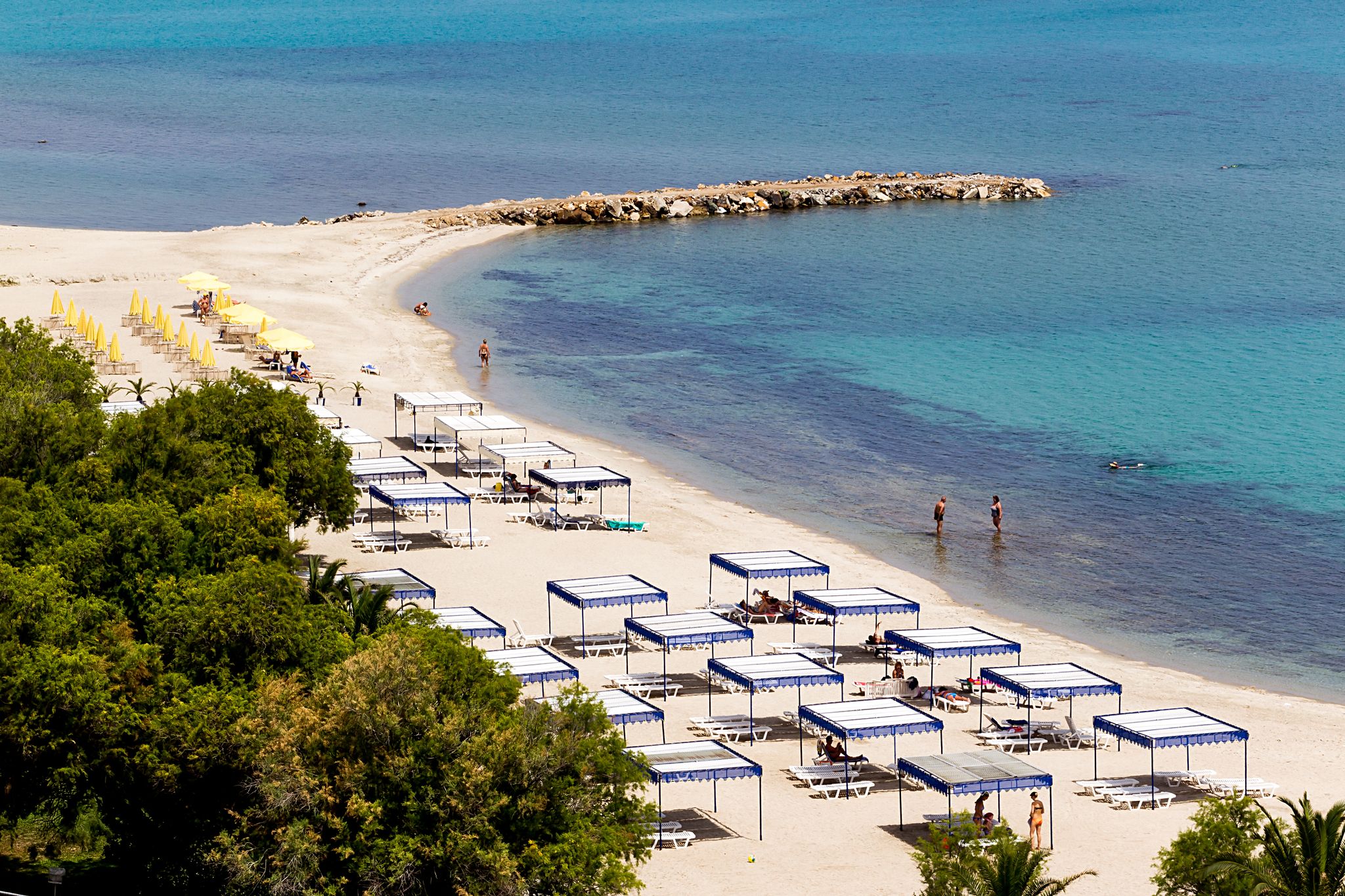
For those looking to soak up the sun and enjoy the beautiful beaches, the best time to visit Greece is from late May to early October. The weather is warm and sunny during this period. The sea is perfect for swimming, making it an ideal time for beach activities.
This period is also great for excursions in Greece to explore coastal towns and islands. The long daylight hours allow for more time to enjoy outdoor activities. With a vibrant nightlife and numerous festivals, summer in Greece is both lively and exciting.
Sightseeing and Cultural Tours in Greece

Spring and autumn are ideal for sightseeing in Greece and exploring its rich cultural heritage. The weather is comfortable and perfect for outdoor activities and walking tours in Greece. During these seasons, you can avoid the crowds and enjoy a more relaxed experience.
In spring, the landscape is lush and vibrant, with wildflowers in bloom. Autumn offers a different charm with harvest festivals and mild temperatures. Both seasons allow you to explore historical sites, museums, and local markets without the summer rush.
Hiking and Biking in Greece

If you're interested in outdoor adventures like biking and hiking in Greece, spring and autumn are the best times to visit. The temperatures are mild, making physical activities more enjoyable. The natural scenery is at its best, with blooming flowers in spring and colorful foliage in autumn.
Spring offers lush landscapes and ideal weather for exploring Greece's trails and parks. Autumn features cooler temperatures and a picturesque harvest, perfect for outdoor adventures.
Wine Tours During Autumn Harvest

The ideal period for wine tours in Greece is during the autumn harvest season, from September to October. During this period, vineyards are bustling with activity as grapes are harvested and processed. Visitors can experience the wine-making process firsthand. They can pick grapes and see them crushed and fermented.
Autumn wine tours also offer the opportunity to taste fresh wines and local delicacies. Many wineries host special events, including guided tours, tastings, and traditional feasts. This season provides a unique and immersive experience of Greece's rich wine culture and traditions.
Special Events and Festivals in Greece
Greece is known for its vibrant festivals and events, which take place throughout the year. Here are some notable events and the best times to travel to Greece to experience them:
Carnival (Apokries)

The Carnival season in February is a lively period to explore Greece. The celebrations have parades, music, dancing, and colorful costumes. Patras, the third-largest city in this country, hosts the country's biggest and most famous carnival.
Greek Orthodox Easter

Easter is one of Greece's most significant religious celebrations. The festivities include processions, fireworks, and feasts. Each region has its own traditions, and experiencing Easter can be a highlight of your trip. The dates for Easter vary each year, but it usually falls in April.
Athens Marathon

Held in November, the Athens Marathon is a significant event that attracts runners from around the world. The race follows the historic route from the town of Marathon to the Panathenaic Stadium in Athens. Even if you're not participating, it's a great time to be in the city and enjoy the festive atmosphere.
Music and Cultural Festivals

Summer is the season for various music and cultural festivals and one of the best times to visit Greece. The Athens and Epidaurus Festival, held from June to August, features ancient Greek drama, music, and dance performances. The Thessaloniki International Film Festival, held in November, is another major cultural event.
The Best Time To Visit Regions in Greece
Greece's diverse regions offer unique experiences throughout the year. Here's a closer look at the ideal times to visit some of the most popular areas:
Best Time To Visit Athens

The capital city of Athens is a year-round destination. Still, the ideal times to visit are spring and autumn. During these seasons, the weather is pleasant for exploring historical sites like the Acropolis and the Parthenon. On the other hand, summer can be very hot, while winter is mild with fewer tourists.
In spring and autumn, you can enjoy leisurely walks through the ancient ruins. You can also explore the city's vibrant neighborhoods, such as Plaka and Monastiraki. These seasons are also ideal for enjoying Athens' outdoor cafes and rooftop bars with stunning views of the city.
Best Time To Visit The Greek Islands

The Greek Islands, including Santorini, Mykonos, and Crete, are best visited from late May to early October. This period offers perfect weather for beach activities, and the islands come alive with vibrant nightlife and events.
For a quieter experience, consider visiting in May or September. Santorini is famous for its breathtaking sunsets, white-washed buildings, and volcanic beaches. Mykonos is known for its lively nightlife, beautiful beaches, and charming old town. Crete offers a mix of stunning beaches, historical sites, and mountainous landscapes.
Best Time To Visit Northern Greece

Northern Greece, including Thessaloniki and the Halkidiki peninsula, experiences more varied weather. Spring and autumn are the best times to visit this northern part of the country. During this time, you'll enjoy comfortable temperatures and beautiful landscapes. Winter can be chilly, but it's a great time to explore this region without the crowds.
Thessaloniki is Greece's second-largest city. It is known for its rich history, vibrant nightlife, and delicious cuisine. The Halkidiki peninsula offers stunning beaches, crystal-clear waters, and picturesque villages.
Best Time To Visit The Peloponnese
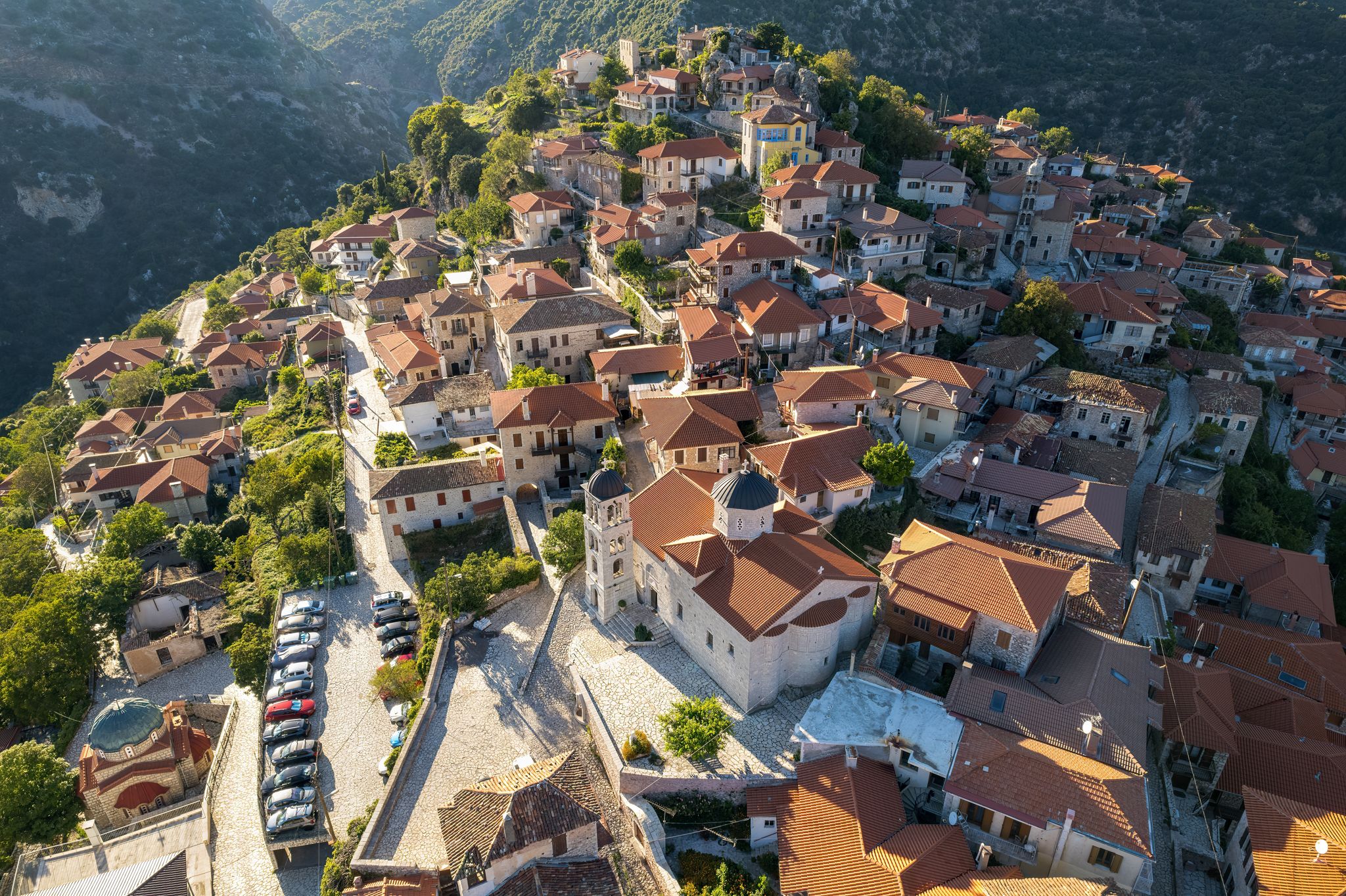
The Peloponnese is a year-round destination with a rich history and diverse landscapes. Spring and autumn are the best times to visit this Greek region for pleasant weather and fewer crowds. It's home to ancient sites like Mycenae and Epidaurus, as well as beautiful beaches and mountainous areas.
In spring, the Peloponnese is covered in wildflowers, making it an ideal time for hiking and exploring the countryside. Autumn is perfect for visiting vineyards and olive groves and enjoying the mild weather and beautiful scenery.
Best Time To Visit Central Greece

The best time to visit Central Greece, including Delphi and Meteora, is in spring and autumn. The weather is comfortable for exploring ancient ruins. It's also an ideal time for visiting monasteries perched on towering rock formations.
Meteora is known for its stunning monasteries, built on top of rock pillars, offering breathtaking views and a sense of serenity. Delphi is considered the center of the world in ancient Greek mythology. It's home to the famous Oracle of Delphi and the Temple of Apollo.
Best Time To Visit The Cyclades
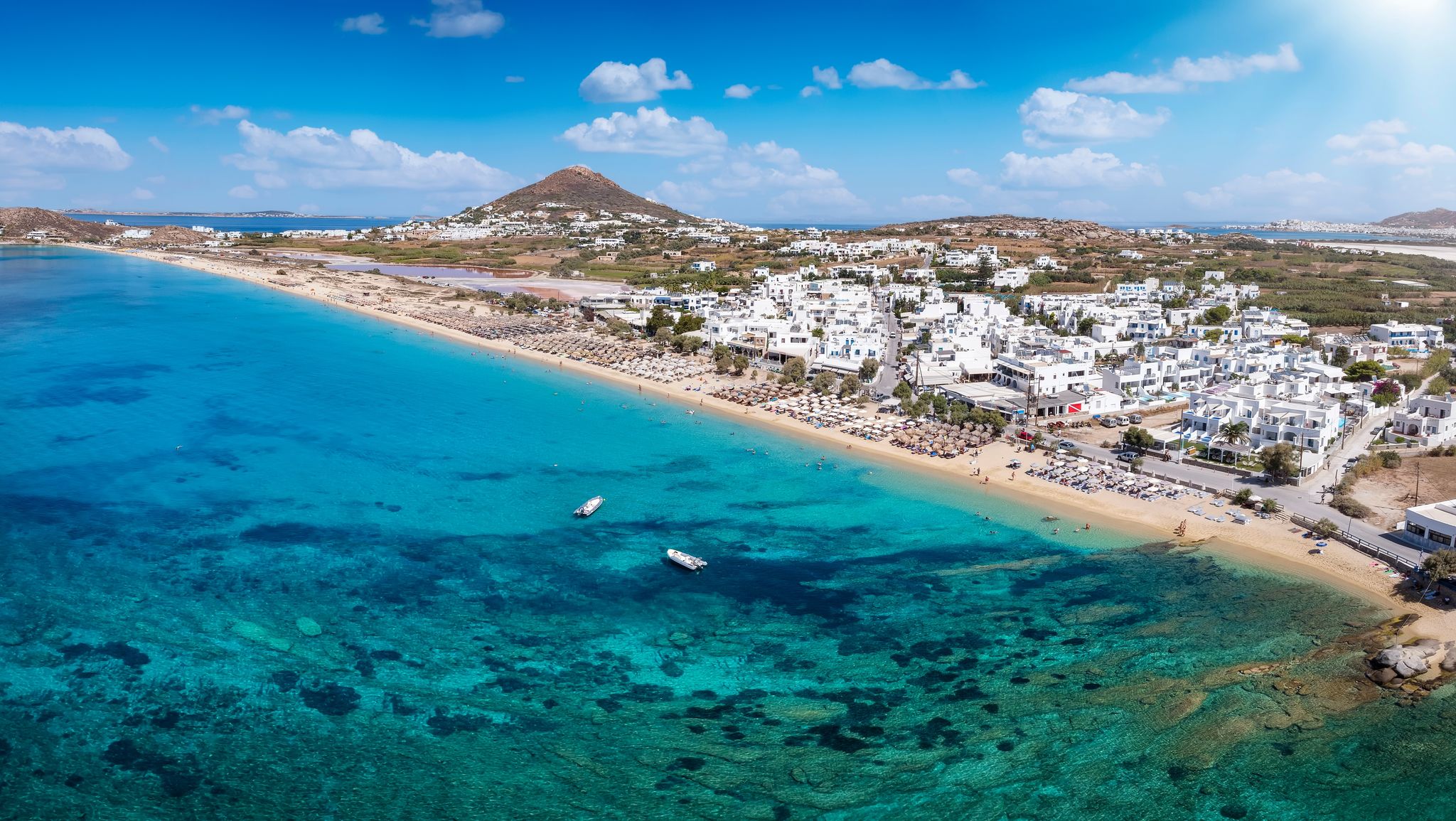
The Cyclades, a group of islands in the Aegean Sea, are best visited from May to October. This is when the weather is ideal for beach activities, and the islands are bustling with life.
Apart from Santorini and Mykonos, the Cyclades include islands like Naxos, Paros, and Milos. Naxos is known for its beautiful beaches and charming villages. Paros offers a mix of traditional architecture, vibrant nightlife, and stunning beaches. Milos is famous for its unique rock formations, crystal-clear waters, and picturesque villages.
Best Time To Visit The Ionian Islands
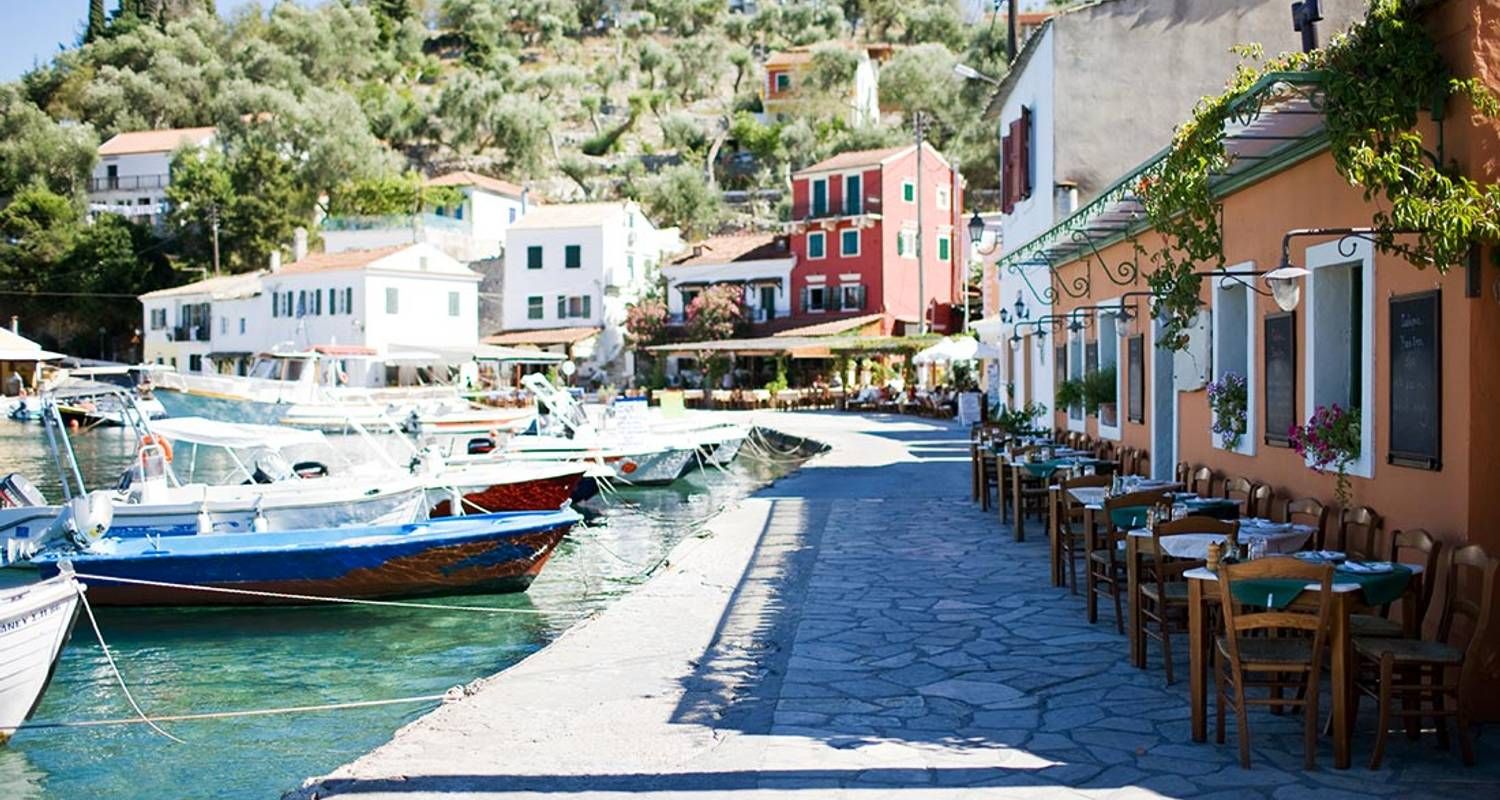
The Ionian Islands, including Corfu, Kefalonia, and Zakynthos, are best visited from May to October. The weather is warm, and the islands offer stunning beaches, lush landscapes, and charming towns.
Corfu is known for its Venetian architecture, beautiful beaches, and vibrant nightlife. Kefalonia offers stunning beaches, crystal-clear waters, and picturesque villages. Zakynthos is famous for its Navagio Beach, also known as Shipwreck Beach, with its turquoise waters and dramatic cliffs.
FAQs on the Best Time To Visit Greece
How can I avoid crowds when visiting popular Greek islands?
To avoid crowds, visit popular Greek islands during the shoulder seasons of spring (April to May). Early summer (June) or early autumn (September to October) are also great times to go. These periods have fewer tourists and more moderate prices.
What is the best month for good weather in Greece?
The best month for good weather in Greece is typically May. The weather is pleasantly warm with lots of sunshine. It's also less crowded compared to the peak summer months.
What are the top festivals to experience in Greece?
Top festivals in Greece include the summer Athens and Epidaurus Festival. Easter celebrations are also a highlight with their unique customs and events. Another notable event is the Thessaloniki International Film Festival in November.
Can I visit the Greek islands during winter?
Yes, you can visit the Greek islands during winter. Some islands have mild weather and fewer tourists, providing a peaceful experience. However, many tourist services may be limited during this season.
When is the best time to visit Greece for a budget-friendly holiday?
For a budget-friendly holiday in Greece, the best time to visit is November. During this month, you'll find lower prices on accommodation and flights compared to the peak summer season. The cooler weather and fewer tourists make it an ideal time to explore Greece without the higher costs of busier periods.
Summary: The Best Time To Visit Greece

Greece offers something special for everyone, no matter the season. From sun-drenched beaches to the historical treasures of Athens, unforgettable experiences await. The best time to visit Greece depends on your planned activities and matching your travel dates to the ideal season. Plan wisely to create lasting memories in Greece!
But do you know when to travel to Greece's capital for the ultimate Greek adventure? Read our guide to the best time to visit Athens and discover the perfect timing for your next adventure!
